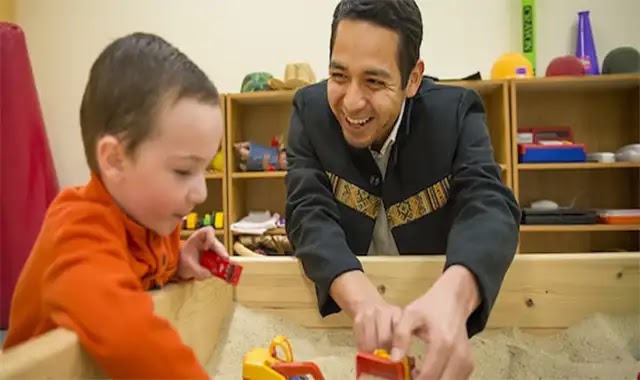Treat the child
The methods that distinguish parents for their children, which are also conscious or unconscious reactions that characterize the treatment of parents for their children during the permanent interaction between the two parties.Types of parental treatment methods:
Acceptance:
It is one of the most important human needs, and according to Preston, it is necessary for a person to feel reassured in his life, and Rohner believes that it is a decisive opinion in the growth of personality, which has implications for the children’s behavior, growth, functional performance, and positive appreciation of themselves and their positive view of life in a stage Adulthood when it becomes clear to them that acceptance develops in their children self-confidence and positive morals.Discard:
Parents who reject their children express their hatred of them in multiple forms, such as neglect, the threat of punishment, and cruel treatment, and ridicule from them.This makes the individual overestimate threatening situations and realizes his potential as insufficient to confront them.
Submission to the child:
Parents are subject to the child when they fulfill his requests, no matter how trivial, they do not have binding authority over him, and the two most important reasons for this type of relationship are the child's severe illness or illness, or the presence of a kind of control in him that misleads his parents to achieve his goals, using the method of anger, dependence, and cramping, and may lead Submission of his demands to vanity, lack of respect for authority, excessive self-confidence, and poor social and emotional adjustment.Excess protection:
In this type of treatment, the parents perform the duties on behalf of the children, even though they are able to do it, and they do not give them the opportunity to act in many matters such as choosing clothes and spending money, and this type of treatment may interfere with bullying and what distinguishes between them. If they are not satisfied with it, then this is considered bullying and develops increased dependency protection, lack of focus, low level of ego strength and ambition, fear and withdrawal, emotional lack of control, rejection of responsibility, ease of subordination and dependence of the group, and excessive sensitivity to criticism.Excessive anxiety and anxiety:
A model of excessive love that restricts children's activity out of fear for them from exposure to any accident or infection, and anxious people do not encourage their children to play in the interest of their comfort, and if they fall ill they care about them more than they should and they are not allowed to mix with others and leave except with adults for fear of strangers and cars, and responds Children treat this parenting with anxiety, intimidation, and dependence on their parents, and they may use their sense of added importance against their parents to assert themselves or punish them.Explanation:
Excessive love includes a method of treatment based on pampering and involves satisfying the requests of reasonable and unreasonable children, and assisting them in every action they wish to do. It is permissible to execute their mistakes. With it, the danger is that the spoiled child remains a child even in his adolescence, and he may be unable to depend on himself and collapse in front of every crisis he faces.Cruelty:
Parents treat their children harshly when they use everything that leads to physical or psychological pain to correct their behavior even though the children may express in their actions the needs they miss or object to the treatment they are being treated with, or because of frustrating circumstances that lead them to resort to aggression, clamor, and quarrelsome as a form of appearance and proof Self.This method of dealing with children generates hatred of authority and may push them to the wing or make them surrender to their parents for fear of punishment, which proves in them feelings of deficiency and exposes them to psychological disturbances. Training children to control the output leads to suffering from emotional disturbances.



Comments
Post a Comment